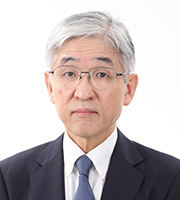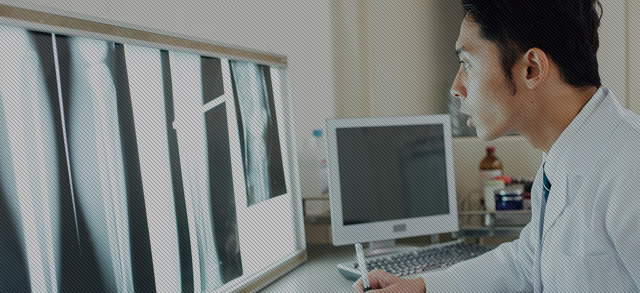Message from Dean, Graduate School
IUHW Graduate School was founded in 1999, with the aim to attract advanced-level medical specialists who will play leading roles in the fields of health, medicine, and welfare in Japan. IUHW Graduate School is unique in that our various arrangements to provide a sufficient research environment for people who work full-time. Currently, our students include those who actually work in the field of health and welfare, and those newly out of college.
Since the school’s founding, new courses have been established focusing on various aspects of the health and welfare field. Some of these unique courses include the following: Reproductive Embryology (rare); Health and Welfare Journalism” (first in Japan); Midwifery (a first as a graduate program); Clinical Psychology (designated by the Foundation of the Japanese Certification Board for Clinical Psychologists); Nurse Practitioner (pioneering course focusing on “specified practice”); Medical Administration; Human Health Related MBA (h-MBA); Advanced Care Network Development (has successfully promoted aged care to an academic level). In 2015, the Health and Welfare Education and Administration course was established with the aim of developing human resources who will play active roles as teaching and administrative staff in the field of health and welfare. Recently we have established several characteristic courses such as Health Care Interpreting and International and Health Management, Disaster Risk Management, Genetic Counseling and Assistive Technology Science to promptly capture up-to-date social needs and dynamically evolve by responding to those needs.
In addition to these distinguishing characteristics, we have excellent affiliated university hospitals (IUHW Hospital, IUHW Shioya Hospital, IUHW Ichikawa Hospital, IUHW Mita Hospital, IUHW Atami Hospital and IUHW Narita Hospital) and many related health and welfare facilities in the IUHW group, including Sanno Hospital and Sanno Medical Center in Tokyo, Fukuoka Sanno Hospital, Fukuoka Central Hospital, Takagi Hospital, and Yanagawa Rehabilitation Center in Kyushu. As you know IUHW Narita Hospital opened in March 2020 as the university’s sixth affiliated hospital to become the world’s medical hub to provide advanced medicine in and outside Japan. All these hospitals provide clinical training opportunities for graduate students.
Furthermore, through a project strongly connected to graduate students and faculty members, we have diverse affiliations with facilities such as the Life-long Learning Center with three levels (first, second, and third) of courses for nurses; Nogizaka School in Akasaka, which offers night classes for those hoping to study topics related to medicine, welfare, and politics and the International Research Center of Health and Welfare. They all provide diverse learning and research options for graduate students.
In association with the establishment of Faculty of Medicine in IUHW, we successfully inaugurated our Graduate School of Medicine and Graduate School of Public Health at IUHW in April 2018. Through a Doctoral program (4-year course) in Medicine and Master's program (2-year course) in Public Health, we will nurture advanced-level competent personnel who can play a leading role in medical sciences by providing an excellent environment for education and research as an international center for medical exchange.
At the same time (April 2018) IUHW Graduate School Campus was moved to Akasaka Area in Tokyo to function as a headquarters office of Graduate School. Since then we have expanded scale of our school both in quality and quantity in order to enhance academic power and brand strength. Seeking to take on a role in the transforming future, we will emphasize stress on the area where development is expected and try hard to make research innovations realized continuously in various academic fields.
IUHW Graduate School, which combines practical and well-organized education and research environments, will continue to advance comprehensive, graduate-level education and research opportunities in the field of health, medicine, and welfare, keeping sight of international perspectives. We appreciate your continued support.

ProfileYutaka Yatomi, M.D., PhD
Graduate from Keio University, School of Medicine / Former President, National Defense Medical College / Honorary Professor, National Defense Medical College / Visiting Professor, Keio University, School of Medicine / Present post since June, 2017.
Educational Principles
Principle of Expertise
At the IUHW Graduate School, our master’s degree program aims to develop “advanced level specialists or research scientists who are capable of understanding and building strong relationships with those in different disciplines in the field of health, medicine, and welfare.” Our doctoral program aims to develop “human resource who can exercise strong leadership in the field of health, medicine, and welfare.” In order to achieve these goals, we have identified the following four principles of education..
Admissions Policy, Curriculum Policy, Diploma Policy
Admissions Policy
IUHW has set the following three Fundamental Principles: University focused on well-balanced individuals with a solid sense of humanity; University strongly connected and fully open to the community; and University directed toward the attainment of global standards. IUHW has also designated the following seven Educational Principles: personality development, expertise, interdisciplinary study, information science and technology, global perspective, free inspiration, and innovative university administration. We focus on realizing these principles and providing an education that will build a “society for mutual respect and support,” in which everyone, regardless of physical and mental situation, respects and assists each
Admissions Policy for the Graduate School of Pharmacy
We welcome students aiming to gain the skill to respond to today’s needs in close connection to clinical practices in the field of pharmacy. Students should aspire to become highly advanced professionals with the knowledge and ability suitable for university instructors and researchers, with ambition to finish a six-year university education. In addition, those already working as clinical pharmacists who hope to receive higher education as working graduate students are applicable for the course (restrictions apply to those who have graduated with a 4-year college education in pharmacy).
Educational Principles
Campuses and curricula allow scholars to study and conduct research while working
IUHW Graduate School offers six campuses located in Tochigi, Tokyo, Kanagawa, Shizuoka, and Fukuoka to medical/welfare professionals who wish to pursue higher education while working. Most classes are scheduled in the evenings and on Saturdays, making it easier for student to attend classes outside work.
